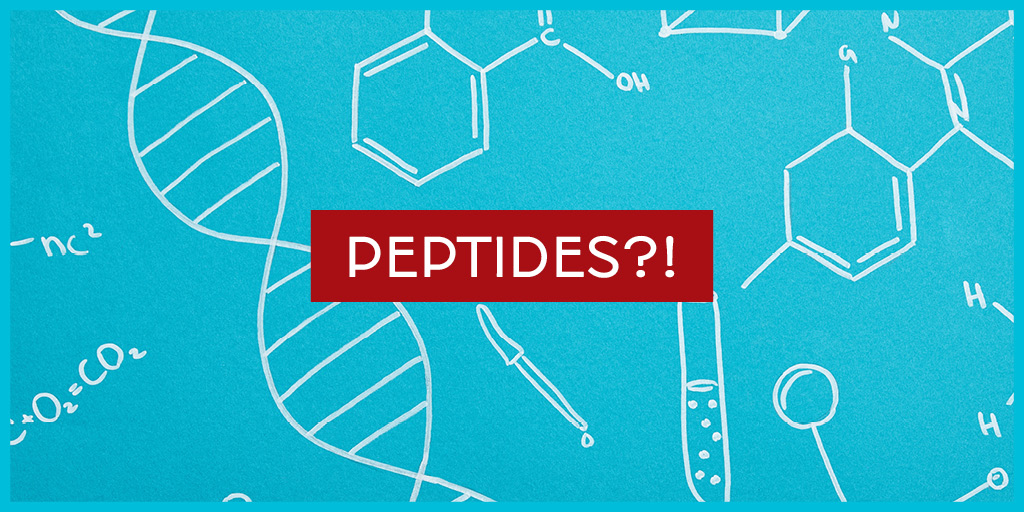
Have you heard about peptides? Wondering what they are – and if they can benefit your health? In this article, we’ll look at what peptides are, how they work, benefits they offer, how therapy is administered, cost of peptide therapy, and the importance of working with a doctor trained in peptide therapy.
What are peptides?
Peptides are proteins (short chains of amino acids, like insulin) that work directly on cellular function and hormone pathways. As we age, we lose the function of many peptides/hormonal pathways in our body. We also end up seeing a decline in cellular function, leading to cellular inflammation (aka “metaflammation” or “inflammaging”). This can lead to faster aging and the development of chronic disease. Peptides can assist in improving these pathways and cellular function, restoring the function of metabolism at the cellular level so that we age healthier.
How peptides work
Peptide therapy isn’t new … it’s been used for decades, but on a limited basis. Now the benefits of peptide therapy and its impact on the body at a cellular level are well understood, and more and more health care providers and patients are taking advantage of this leading-edge therapy. (Personally, I dedicate much of my time to researching the best treatments for my patients, and have found peptide therapy to be a very effective tool in helping them reach their health goals.)
Peptide therapy works to stimulate secretion of growth hormone releasing hormone (GHRH),
which signals the release of human growth hormone (HGH). This has a positive domino effect on the body – supporting the reduced risk of disease and improved vitality, health and longevity.
Benefits of peptide therapy
Different peptide therapies can support different health goals: recovery, anti-aging, brain function, pain, gut health, and growth. For example, I work with my patients on peptide therapies to support:
- Athletic performance: Peptide therapy can help increase speed and endurance, support improvements in strength, enhance lean muscle, and support efficient workout recovery.
- Cognitive function: Certain peptides have been shown to help naturally restore mental function and support improvement for symptoms of mental distress.
- Disease and trauma management: Some peptide therapies have been shown to help improve symptoms, support risk reduction, and help with recovery from a variety of diseases and conditions.
- Anti-aging and regeneration: Some peptides can offer support for cognitive function, pain management, nerve repair, immune function, reduced oxidative stress, improved bone density, enhanced learning and improved memory.
- Weight loss and management: Other peptides support the production of key factors that assist in fat reduction, metabolic efficiency (including blood sugar and insulin support), and ultimately healthy weight management.
- Sexual health: Peptides have been shown to help counteract the effects of aging on the genitalia and libido, and support improved sexual vitality for both men and women.
- Skin rejuvenation: Certain peptides can increase the amount of melanin in the skin to support protection against UV rays and induce skin tanning.
How are peptides administered?
Peptide therapy can be administered orally or by injection. Injection is typically the most effective therapy option.
Cost of peptide therapy
The cost of peptide therapy varies based on the type. In general, peptide therapy can range from $175 – $700.
Choosing a peptide therapy provider
Since there are many types of peptides, it is important to find a doctor who is trained in peptide therapy and can help you find the right peptide treatment plan to support your specific conditions and goals.
If you’d like to explore if peptide therapy can help you reach YOUR health goals, please get in touch. I’m seeing patients at Evoke5, my functional medicine clinic in Oklahoma City, as well as offering online consultations for clients across the country.
